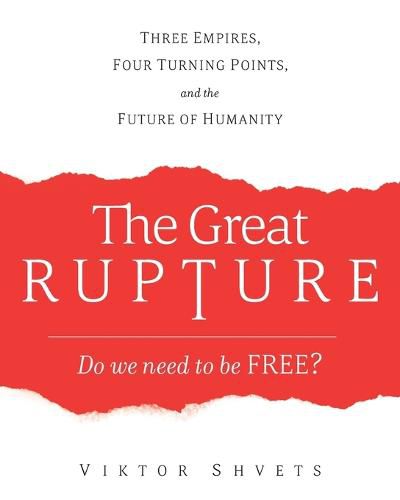Readings Newsletter
Become a Readings Member to make your shopping experience even easier.
Sign in or sign up for free!
You’re not far away from qualifying for FREE standard shipping within Australia
You’ve qualified for FREE standard shipping within Australia
The cart is loading…






This title is printed to order. This book may have been self-published. If so, we cannot guarantee the quality of the content. In the main most books will have gone through the editing process however some may not. We therefore suggest that you be aware of this before ordering this book. If in doubt check either the author or publisher’s details as we are unable to accept any returns unless they are faulty. Please contact us if you have any questions.
Do we need to be free to be innovative, prosperous, or even happy?
The lessons of the last five centuries were unequivocal-without freedom, there could be no prosperity or happiness. However, does this still hold true in the Information Age?
Modern technologies are disrupting our societies, altering every facet of our lives, from the nature of work and what we intrinsically value, to how we are informed, entertained, and educated-it promises to be a far deeper disruption than Industrial Revolutions. Humanity is at a major turning point, and how we respond to the merger of technology and financialization will decide our future. Will it be capitalism or communism, feudalism or despotism?
By learning from the past and projecting into the future, global market strategist Viktor Shvets explores the weakening nexus between freedom and prosperity and what that means for the future of humanity. From the birth of our modern world, pivotal events in human history have led to the collapse of non-Western civilizations-Mongol warriors sweeping across Eurasian steppes; the Black Death and a re-awakening of human spirit; Zheng He’s voyages and the collapse of Novgorod republic; and finally, the ban on printing in Arabic. What can we learn from these events to better prepare ourselves for the future?
As we hurtle toward that uncertain future, we must decide whether our cherished individual freedoms are still necessary for success and prosperity, or if in adapting to new technologies, non-Western civilizations are now better positioned for this new world, creating illiberal orders that might no longer suffer from stagnation of ideas. For the first time in at least five centuries, we have an opportunity and tools to build a different society and economy. Will we embrace the challenge?
$9.00 standard shipping within Australia
FREE standard shipping within Australia for orders over $100.00
Express & International shipping calculated at checkout
This title is printed to order. This book may have been self-published. If so, we cannot guarantee the quality of the content. In the main most books will have gone through the editing process however some may not. We therefore suggest that you be aware of this before ordering this book. If in doubt check either the author or publisher’s details as we are unable to accept any returns unless they are faulty. Please contact us if you have any questions.
Do we need to be free to be innovative, prosperous, or even happy?
The lessons of the last five centuries were unequivocal-without freedom, there could be no prosperity or happiness. However, does this still hold true in the Information Age?
Modern technologies are disrupting our societies, altering every facet of our lives, from the nature of work and what we intrinsically value, to how we are informed, entertained, and educated-it promises to be a far deeper disruption than Industrial Revolutions. Humanity is at a major turning point, and how we respond to the merger of technology and financialization will decide our future. Will it be capitalism or communism, feudalism or despotism?
By learning from the past and projecting into the future, global market strategist Viktor Shvets explores the weakening nexus between freedom and prosperity and what that means for the future of humanity. From the birth of our modern world, pivotal events in human history have led to the collapse of non-Western civilizations-Mongol warriors sweeping across Eurasian steppes; the Black Death and a re-awakening of human spirit; Zheng He’s voyages and the collapse of Novgorod republic; and finally, the ban on printing in Arabic. What can we learn from these events to better prepare ourselves for the future?
As we hurtle toward that uncertain future, we must decide whether our cherished individual freedoms are still necessary for success and prosperity, or if in adapting to new technologies, non-Western civilizations are now better positioned for this new world, creating illiberal orders that might no longer suffer from stagnation of ideas. For the first time in at least five centuries, we have an opportunity and tools to build a different society and economy. Will we embrace the challenge?